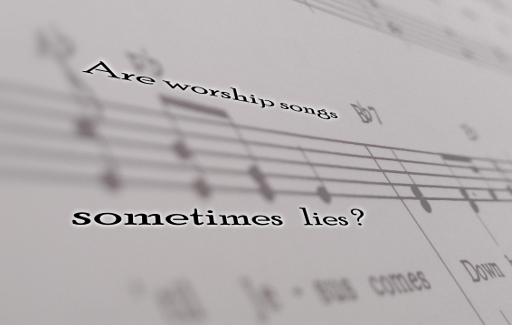The other day, I was walking past someone sat under a bridge reading a book. He was frustrated, he told me, as he had come “this close” to getting off the streets. True enough, what he needed was ridiculous: £12.50 to get somewhere (which he was told he would get reimbursed later!), and meet a landlord who had agreed to rent out a place to him. That situation taught, or refreshed a few things for me:

1. One life can be changed by something ridiculously small.
Without these £12.50, he would have stayed on the streets, probably despondent.
With these £12.50, there was a chance he could find a home, get off the streets and get a fresh start.
“Every penny helps” is something we hear a lot from charities – and I tend to admit that in an “it all adds up” kind of way. But it’s so much more than that – a small amount can be crucial on its own.
2. It is easier than you’d think to give up close to the end, because of a setback.
The amount of stuff this guy seemed to have fought for – finding a landlord willing to take him without much money, getting the promise of being reimbursed some of his way off the street, etc. – is a testimony that he really tried hard to turn his life around.
But when I met him, he had given up. There was no way he could get the sufficient amount in time. His frustration from it was visible – nearly tangible, but he wasn’t asking for help.
Sure, it is important to start – and I’ve tried to explain this before – but it is just as important to see things through. Setbacks will come along the way, but they are no reason to give up trying.
3. Hope is fragile, but can sometimes be rekindled easily.
He had all but given up. The money got him to get up and run to the station. All of a sudden, it became possible again. As it turns out, I bumped into him again the next day – where he was in a hurry to go and try again (seemingly, there had been a setback the day before). The change was great – from static and seated to standing and running.
He had hope again – and that was rekindled very easily.
4. Different responses are appropriate at different times.
Lecturing him about contents insurance (which would be quite cheeky from someone who does not have contents insurance anyway), or assuring him of God’s love for him there and then, would probably not have gotten through to him. Worse, they could have been damaging. There is no set formula to rekindle hope in someone. Sometimes, all that is needed is a few words, sometimes it’s action. It’s important to discern where to use each.
5. Sometimes, you have to actively look for where to give.
Just because he didn’t ask, doesn’t mean he shouldn’t be given. Of course, it is easier to give when asked – but many reasons stop people from coming to you to ask: pride, despondency, etc. So be on the look out for people who need your input, whatever the shape. Be ready.
6. Giving takes many shapes.
There’s monetary gifts. There’s giving your time, or your attention. There’s the trust the landlord gave him when he decided to let him in without guarantees. There’s prayer. That means that there is always something you and I can give.
7. Giving never happens in a vacuum.
Those £12.50 were only what was left of what was needed. There had been, presumably, people before me who had given this guy their money and their trust (the total amount was in the £60 region, I think). There will be more people too.
Celebrating this is key to building a community of people who share in the humility of service, rather than in the boastfulness of achievement.
8. Giving is best in a relationship, but giving can start a relationship.
I wanted to know he made it. I wanted to let him know I cared, too. But I didn’t know him, and had no way of chasing it all up. A relationship allows for so much more than momentary giving. But it has to be a healthy relationship between equals – not one of dependance. And the balance is hard to strike when giving is at the core of the relationship – I’ve messed it up twice so far and have yet to get it right, but I’m getting better at it.
9. Sometimes, giving doesn’t lead to what you planned.
I wanted my input to get him off the streets. As I mentioned earlier, it didn’t work out on the night, as he told me when I bumped into him the next day. Control stops the moment you give the money, and that’s something to accept as and when you give. Then, when it doesn’t work out, it’s no reason to stop giving altogether.
10. It’s alright not to know.
There is a small chance that this was a scam. I don’t believe it was, but it is possible. Not knowing what my money ended up doing is fine – not pleasant, but fine. Because it stopped being my money the moment I gave it. The only valid reason to chase up the result of my giving, is in order to keep on helping, if and when necessary.
At the same time, it is nice to know we were useful. So if you’re on the receiving end, do tell your helpers that they have been useful.
10. Tomorrows aren’t safe.
Like this guy’s, your house may burn and you may lose all your possessions. There are a few things that are beyond sudden damage: God, and, hopefully, friends. Know to place your trust in them and to nurture your relationships with both.
11. The damages of the culture of entitlement and all the criteria for entitlement that come with it are staggering. If that guy were in more dire need – if he were on drugs, for instance – he would have had access to a shelter. And he was aware of that. I totally get why these people should get more help; but in a culture of consequences, drugs can appear as an easy way out.
The same culture stops us from realising what life can be like when you stop getting NHS – because, after all, everyone is entitled to NHS support… but for some reason (involving missing paperwork), this guy didn’t.
12. “Refunding” is not always enough.
Sure, at the end of the day, you will end up (roughly) the same. And better a system where a refund is possible than a system with no aid at all. But this system only works for those who have the cash to advance; and was not enough in this case. What’s free after all is taken into account is not free at the point of use and this should be kept in mind.
12 ½. You can’t always play it safe.
This ties in with the above. Refunding means getting the receipt, and means being sure that the money was used in the way you intended to be used. But trust is vital in giving. And that trust, I would argue, should not have to be earned.




